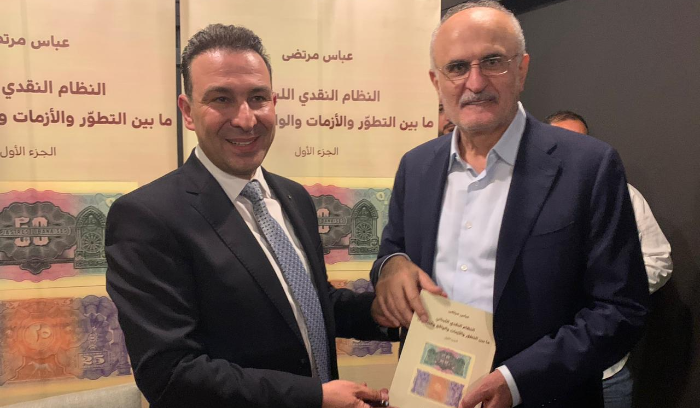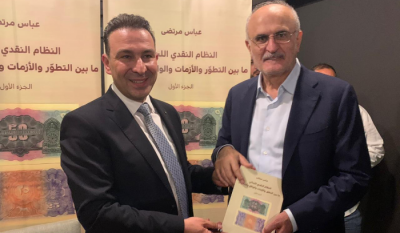Deputy Ali Hassan Khalil warned against attempts to disrupt dialogue, stating, "The foundation remains the regularity of our political life." He added, "Without it, we cannot emerge or position ourselves on the path towards a new era and phase. This regularity requires political forces to converge on common ground, no matter how simple, to work on expanding it. Hence, the invitation from the Prime Minister for a national dialogue focuses solely on agreeing on a new president of the republic, which would constitute the beginning of re-establishing the functioning of all institutions and forming a true rescue government, in addition to launching the projects we have discussed."
In his speech while representing President Nabih Berri at the signing of former Minister Abbas Mortada's book titled "The Lebanese Monetary System Between Development, Crises, Reality, and Consequences," Khalil noted, "Unfortunately, even at this moment, despite some encouraging local, Arab, and international atmospheres, some individuals are still caught in a vicious cycle, bogged down by many conditions and calculations that lead to one outcome: the disruption of this dialogue. We have reached a stage where the scale of political conflict and the blockage in the horizon of resolution has reached a dangerous level. If a national dialogue does not occur during major national crises, when will it happen?"
Khalil continued, "We want quick understanding as soon as possible to elect a new president of the republic." He stated, "It is time to return to sound judgment, as the government has formed a committee to reconsider the law of monetary and credit systems. We must speak frankly; the goal is not to overturn this law, which is considered a progressive reference law, but the most important thing is how we can establish the foundations that ensure true governance in managing and applying this law and addressing some loopholes that have allowed this overlap that may have exacerbated the crisis, even though it may not have been a fundamental element in creating this crisis."
Khalil added, "The challenges faced by all Lebanese today necessitate that we embark on a genuine reform process, with or without an agreement with the International Monetary Fund. The basis for the steps and solutions is the approval of the required reform programs and laws to emerge from this crisis. We have a set of laws regardless of who is responsible for delivering or raising them to the parliamentary council and the position of political and parliamentary blocs on them. Regardless of our political divisions, differences, and existing distances regarding the upcoming responsibilities, today it is required that we do not waste time, elevate ourselves, and interact with a national level of discourse away from narrow calculations to launch a real initiative that leads to the approval of a plan for economic and financial revival, to the approval of a law to restore regularity to the financial system in Lebanon, to the financial sector. This plan was unfortunately presented by the government in a distorted manner, deviating from the path of genuine resolution, especially when this bill started from exceeding the rights of depositors to secure a formula and solution to return their funds."




